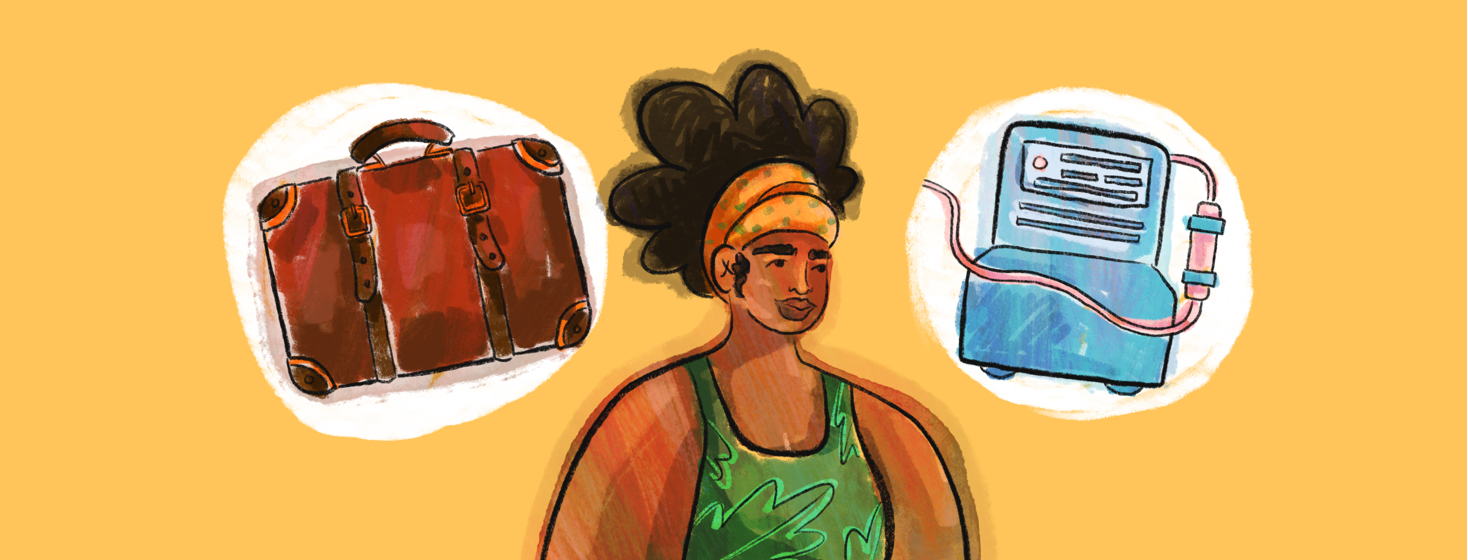Yes, You Can Travel as a Dialysis Patient
When I got the news that my kidney function had diminished to the point that I needed dialysis, my heart sank. I was young, married, and fairly active with recreational activities – one of them being travel. My husband and I were in the pursuit of starting a family, but in the meantime, being married and childless was the perfect time to explore. Until it wasn't, so, imagine my surprise when I learned that travel was one of the few things that I could still enjoy, with careful preparation, of course.
Here's how I was able to travel as a dialysis patient safely:
Give your dialysis team advance notice about your plans
Unfortunately, the days of "spontaneously" jetting off to wherever isn't an option for dialysis patients. But don't let that stunt your plans. Typically, dialysis centers like a couple of weeks' notice that you plan to travel, for how long, and where. Why? They use that information to determine the nearest dialysis center that can accommodate you in an emergency. They also use it to order dialysis solution and supplies and send it to your destination in advance – so convenient for you. I've had to travel with dialysis solution – no bueno – so make a reminder to yourself to let your dialysis team know about your plans. Tip: Do your due diligence and call the hotel or the place you are staying to ensure your dialysis supplies' safe arrival.
Purchase a protective suitcase where your dialysis machine can fit
While my dialysis center had a bag that they let patients borrow for trips, it was a cloth material and didn't protect my machine at all. And I needed something more permanent. Thankfully, my mom gifted me with luggage, and one of the suitcases was perfect for my machine. I was able to fit my machine, the machine cord, and a few other things in that bag. A small investment to enjoy life more.
Secure a letter from your dialysis team
The major struggle with traveling with a dialysis machine, or any medical device for that matter is that airline companies and their staff are not usually knowledgeable about what is allowed onboard aircraft. This is where being your own advocate and having backup support comes in handy. While having this document shouldn't be necessary, it helps a lot. Your machine can usually be stowed securely, without a suitcase, in an overhead bin. It might also be stored in the front of the aircraft near the pilot quarters. Many times, I was a newbie flying with my machine, and I checked my bag. Avoid this at all costs because airline workers hardly ever consider anything marked "fragile" when handling luggage. Tip: You have the right to pre-board your machine to ensure it gets a place on the aircraft, so as soon as you get to your gate, let them know you have a medical device.
Stay tuned for Part 2 to learn more tips on how to travel successfully while on dialysis.

Join the conversation